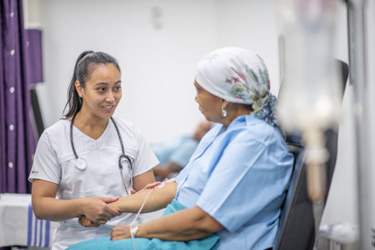4 Unique Challenges Of Oncology Trials
By Stephanie Pyle, Director, Content and Communications

Oncology research stands at the forefront of medical advancements, holding the promise of life-changing breakthroughs for millions of patients worldwide. However, the path to success in this field is fraught with unique challenges that researchers must navigate to bring new cancer drugs from inception to FDA approval.
According to a 10-year oncology research study conducted by the Biotechnology Innovation Organization (BIO), only 5.1% of new cancer drugs tested in Phase I are likely to receive Food and Drug Administration (FDA) approval. The transition from Phase I to Phase II displays a more promising success rate of 63%, but as the drugs move to Phase III, the odds drop drastically to just 25%.
Adding to the complexity, a literature review conducted in 2021 estimated that the average capitalized research and development (R&D) costs per new cancer medicine ranged from $944 million to a staggering $4.54 billion. The financial burden of such research endeavors is undeniable, and the typical clinical development timelines for anticancer drugs average around 6.7 years, with biotechnology-derived products potentially adding another year or more. These prolonged timelines and soaring costs underscore the immense commitment required to shepherd potential therapies from bench to bedside.
In this article, the author dives into the unique characteristics of oncology research and the challenges researchers must confront, exploring the critical factors that contribute to disparities in success rates across clinical trial phases, and unveiling potential strategies to enhance the likelihood of successful drug development.
Get unlimited access to:
Enter your credentials below to log in. Not yet a member of Clinical Leader? Subscribe today.
